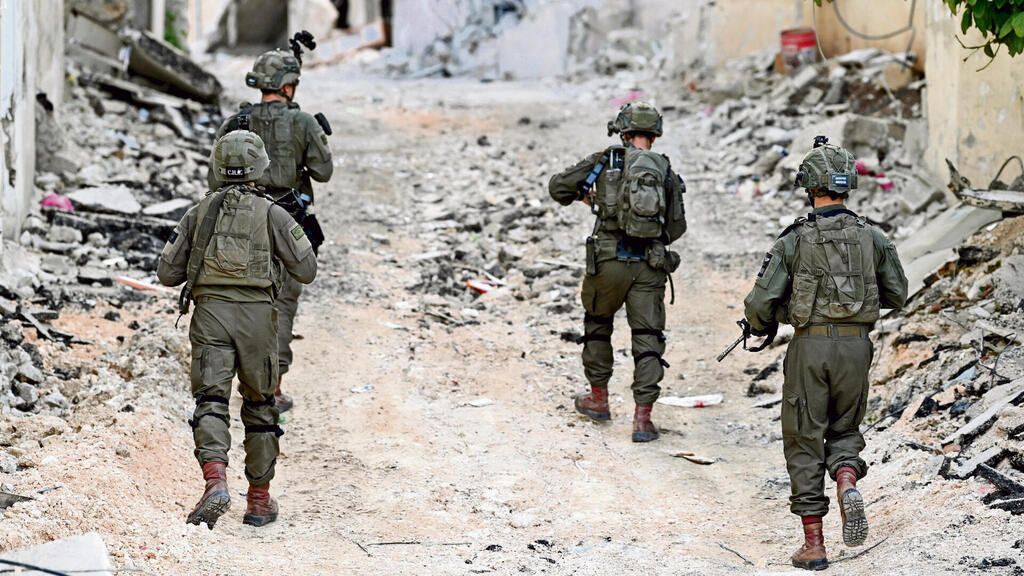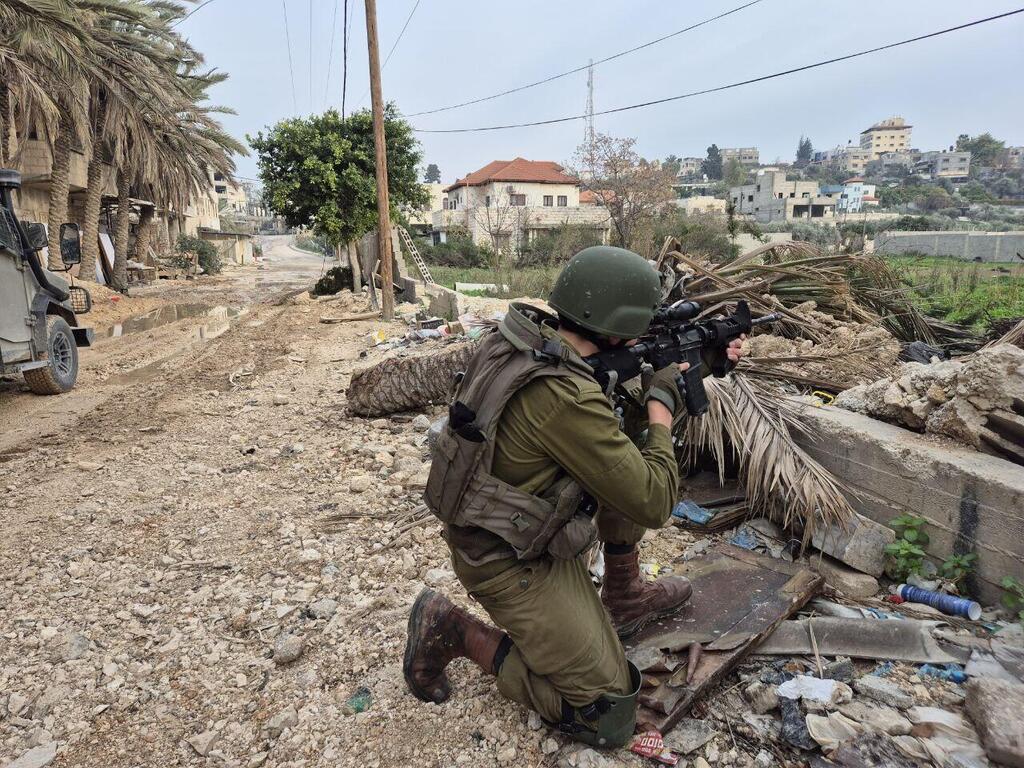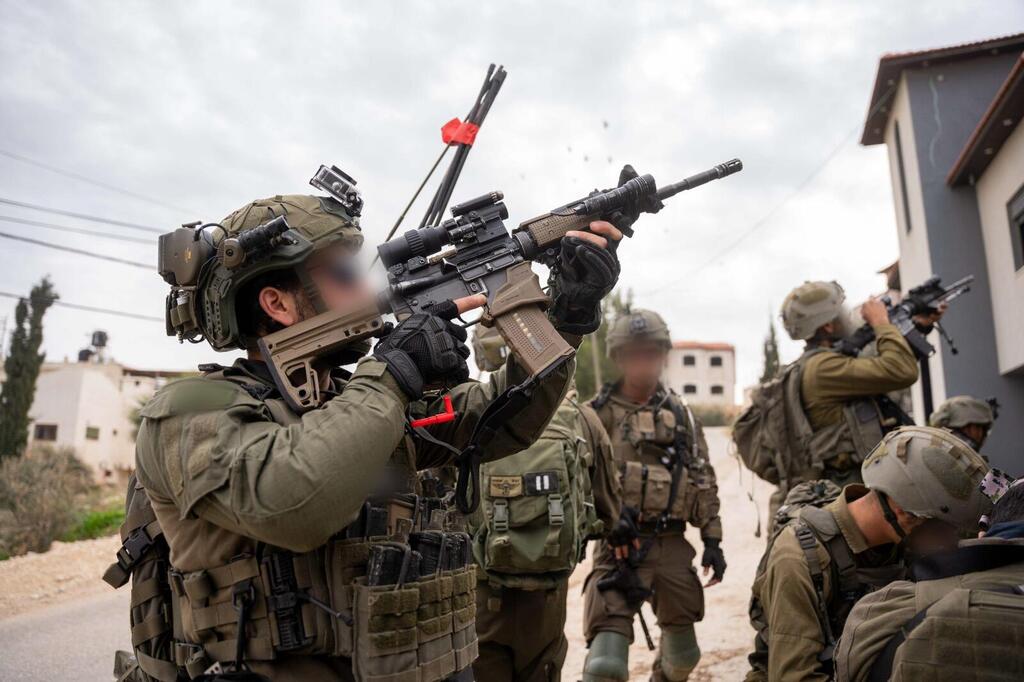Getting your Trinity Audio player ready...
The Shin Bet announced Thursday that it had recently arrested a Hamas and Fatah terror cell from Ramallah that was planning to carry out a bombing attack on a bus in Jerusalem.
According to the investigation, the cell intended to remotely detonate an explosive device smuggled into Israel as part of the attack. The plot was reportedly motivated by a desire for revenge over the ongoing war in Gaza.
IDF forces operating in Tulkarm
(Video: IDF)
While Israeli security forces have thwarted nearly 1,000 terrorist plots over the past year, senior military officials are increasingly concerned about the security situation in the West Bank. Some officials describe the threat level there as even greater than in Gaza, fearing a potential large-scale attack similar to the events of October 7, 2023, targeting Israeli settlements and communities near the security barrier.
In response to these concerns, the IDF has established a special command to address potential threats in the West Bank. The newly designated force, which includes multiple reserve brigades from the Home Front Command, will be tasked with defending border communities stretching from the northernmost tip of the West Bank, through the Sharon area and down to Hebron.
The brigades, formed in the wake of lessons learned from May 2021’s Operation Guardian of the Walls, are trained to secure key transportation routes, similar to those blocked by Israeli Arab rioters during previous unrest.
Additionally, a specialized reserve mobilization unit will be responsible for swiftly deploying forces to security breaches along the border fence.
Last month, reserve soldiers from the elite Duvdevan Unit thwarted a Hamas-inspired infiltration attack just three kilometers from Highway 6, an event that could have had significant consequences.
Meanwhile, the IDF’s Central Command has conducted complex large-scale drills simulating extreme attack scenarios, including the defense of border communities, challenges in intelligence gathering and aerial response coordination.
Get the Ynetnews app on your smartphone: Google Play: https://bit.ly/4eJ37pE | Apple App Store: https://bit.ly/3ZL7iNv
Nearly three million Palestinians live in the West Bank, many in close proximity to more than half a million Israelis. For years, Iran and its proxies—particularly Hamas—have sought to establish a stronger foothold in the area. From Hamas’ perspective, Gaza has already served its purpose by carrying out the deadliest terror attack in Israel’s history and is now embroiled in a prolonged war.
Iran-backed groups in Lebanon, Yemen and Iraq have rallied in support of Gaza, and some within Hamas are questioning why West Bank Palestinians have not followed suit.
In recent months, Israeli security agencies have observed a surge in terrorist activity, the use of advanced weaponry and the emergence of new local terrorist cells in Tulkarm, Jenin and Tubas. In response, Israeli forces have launched a nearly unprecedented counterterror operation in the northern West Bank, focusing on Jenin, Tulkarm and the surrounding villages.
The head of the IDF’s Menashe Brigade has led efforts to separate the Jenin refugee camp from the city itself, working alongside Shin Bet officers and Civil Administration officials to dismantle terror infrastructure. Some of these operations have intercepted imminent threats moments before attacks on civilians and security forces.
While the Jenin and Tulkarm refugee camps remain terrorist strongholds, their adjacent cities have largely resumed normal life, with trade and education continuing despite ongoing military activity nearby.
Meanwhile, restrictions imposed on Palestinian movement in the West Bank have sparked growing unrest. Finance Minister Bezalel Smotrich, who also holds the portfolio of a minister in the Defense Ministry, pushed for roadblocks, which were approved by the government and security officials, but military leaders have questioned their effectiveness. Some IDF officials argue that the deployment of combat forces to maintain checkpoints diverts resources from offensive operations, straining an already stretched military force.
Recent intelligence suggests that Palestinian frustration is mounting—not over Trump’s proposal to relocate Gazans to a third country or his vague remarks on potential annexation, but over the daily traffic congestion caused by roadblocks, which have led to hours-long delays.
While the IDF and Shin Bet remain focused on preventing terror attacks and safeguarding Israeli citizens on both sides of the Green Line, officials warn that political decisions that disrupt daily life could further destabilize the region.
In response to the developments, the IDF said: "The IDF is working to strengthen readiness for various scenarios across all sectors. We do not comment on operational preparations."









